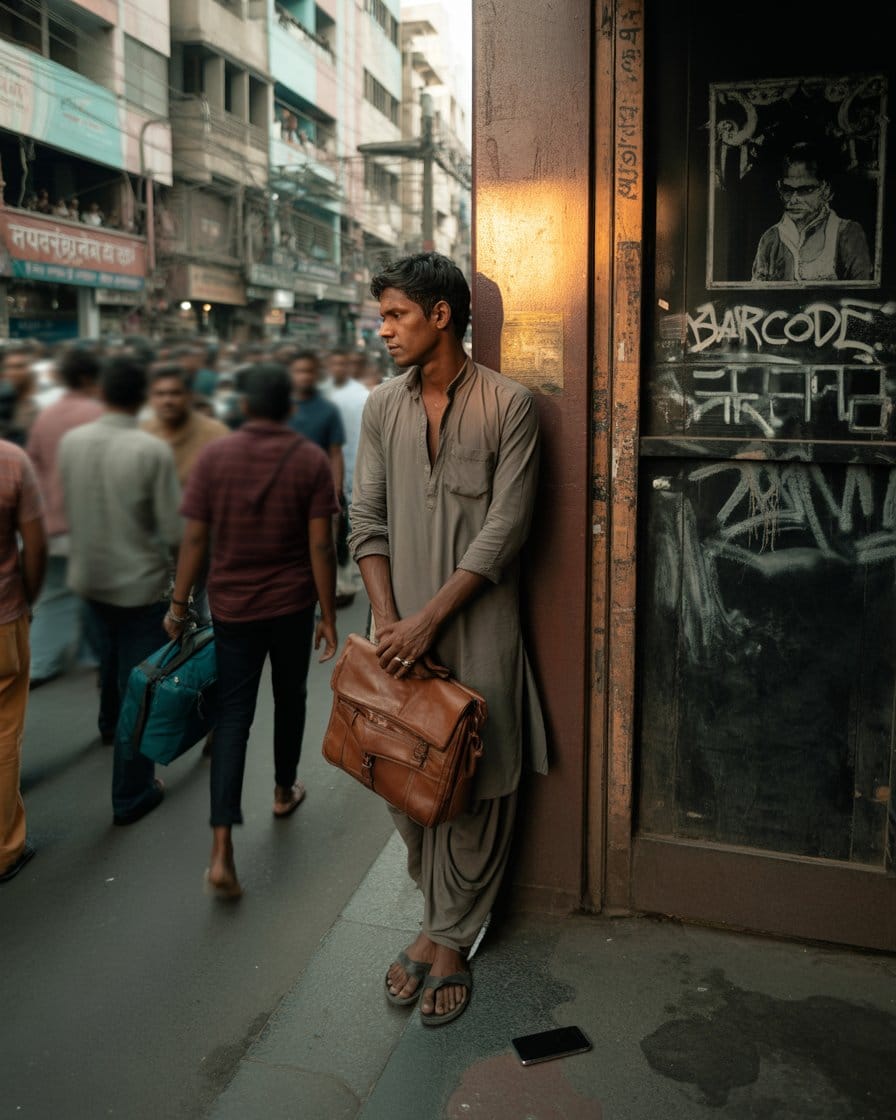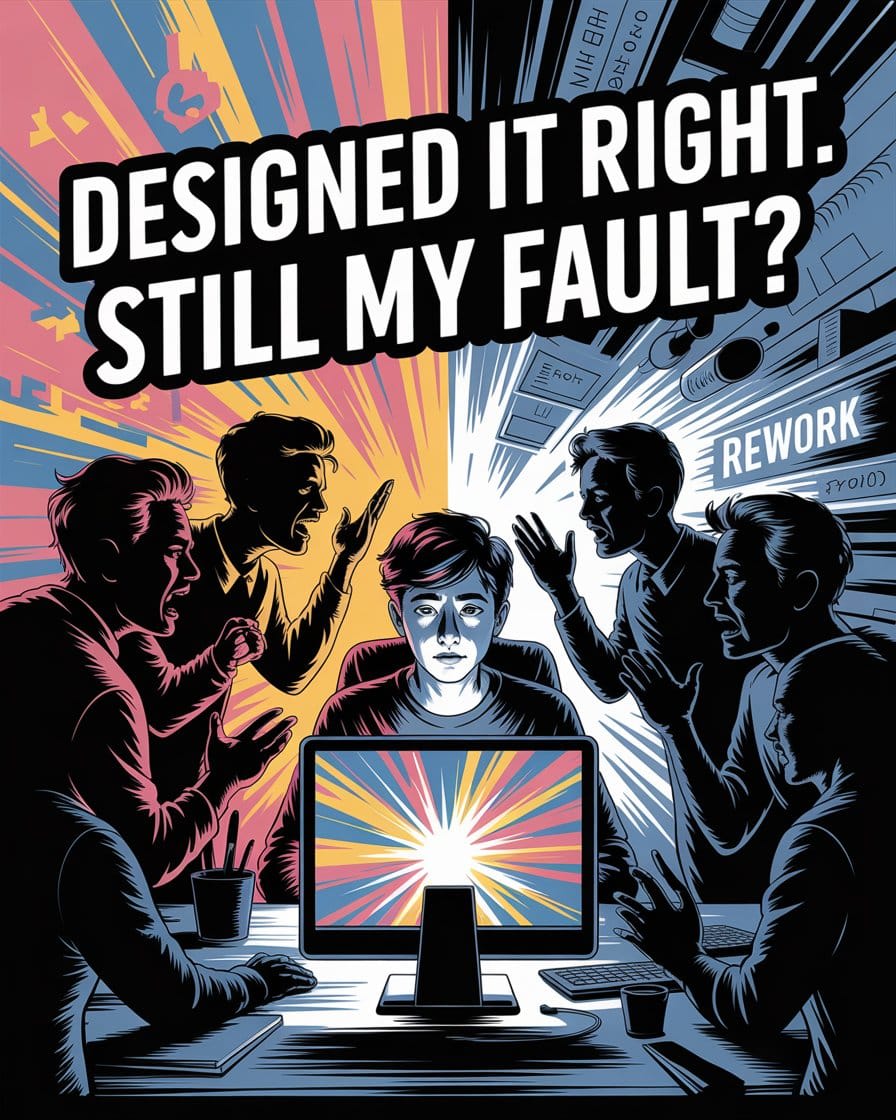THE FA!LURE

The Sharma family was what everyone in the neighborhood called “the perfect family.” Mr. Sharma was a high school teacher, calm and composed, always encouraging his students. Mrs. Sharma worked for a multinational company, always busy but with a smile on her face. They had two children—Aryan, the elder son, and Meera, the younger daughter. From the outside, it looked like the perfect middle-class dream.
But, as the saying goes, "Not everything that shines is gold." Inside the house, things were different. The Sharmas were educated, but when it came to parenting, they were far from perfect.
Aryan, their 19-year-old son, had a dream. He loved dancing. Every beat of music brought him joy. His dream was to open a dance studio and become a famous dancer. But for his parents, dance was nothing more than a hobby, something to pass the time. In their eyes, Aryan was destined to become an IAS officer, to wear that prestigious badge of honor.
Mrs. Sharma would always say, "Aryan, why are you wasting your time on dance? Study for your IAS exams. Do you know how hard it is to get a government job these days?"
Mr. Sharma would add, “You need a secure future. Dance will not pay the bills.”
Every time Aryan tried to talk about his passion, it was shut down. His parents controlled every step he took, every decision he made. They micromanaged his life, but only his. Meera, on the other hand, was their little princess. Whatever she wanted, she got. Dance classes, art supplies, even weekend trips with friends—Meera had all the freedom in the world.
But despite this imbalance, Aryan and Meera were close. She was his only support. Meera saw his talent, encouraged him to dance, and stood by him when he felt down.
One day, Aryan came home late after hanging out with friends. It was a rare moment of fun for him, but his parents were furious. “This is why you will never succeed!” Mr. Sharma yelled. “From now on, no going out, no more dance nonsense. You will only focus on your IAS exams.”
Aryan tried to explain, but their words were like daggers. And to make things worse, Meera wasn’t home. She had gone to her hostel for further studies. Aryan felt more isolated than ever.
Time passed. The day of the IAS exam arrived, and Aryan did as his parents wished—he sat for the exam. But the excitement he had once felt for his future had long faded. He was living in a cage, his parents holding the key.
One evening, alone in his room, Aryan played some music and started dancing, just like he used to. It was the only thing that made him feel alive. But once again, his parents barged in. “Stop wasting your time! You’re never going to achieve anything if you keep doing this!” Mr. Sharma shouted. Aryan’s mother didn’t even look at him.
That night, Aryan called Meera. He couldn’t hold it in anymore. “I feel trapped,” he said, his voice barely audible. “I don’t want to do this anymore. I’m tired, Meera. I’m tired of being someone I’m not.”
Meera’s heart sank. She knew her brother was hurting, but this was different. “I’m coming home,” she said, immediately packing her bags. She could feel the weight in Aryan’s words, and it terrified her.
When she arrived, it was late, but she didn’t care. She stormed into the living room and confronted her parents. “Why don’t you see him for who he is?” she shouted, tears streaming down her face. “Aryan doesn’t want to be an IAS officer. He wants to dance. Just watch this!” She pulled out her phone and played a video of Aryan dancing, his face glowing with joy in every step.
For the first time, Mr. and Mrs. Sharma sat silently, watching the video. They had never seen their son like this before. They had never wanted to see it.
“I’ll go talk to him,” Meera said, running to Aryan’s room. But when she opened the door, her world collapsed.
Aryan had taken his own life.
Meera’s scream echoed through the house, shaking her parents to their core. The boy they had molded, controlled, and scolded was gone. Their dreams for him, their expectations, had crushed him, and they were too late to see the consequences.
After Aryan’s death, the house felt hollow. Meera was never the same; she lost her spark, sinking into depression. Mr. and Mrs. Sharma, who once believed they knew what was best for their son, were now left with a lifetime of regret. They realized that sometimes, in trying to push their children toward “success,” they had ignored their true happiness.
“I never understood him,” Mr. Sharma would whisper to himself, staring blankly at Aryan’s old dance shoes. “We never asked what he wanted.”
Mrs. Sharma, who had always been practical, now sat quietly most days, lost in her thoughts. “If only we had listened,” she would say, her voice trembling with sorrow.
Parents often believe they know best for their children, but every child has a unique dream, a vision for their life. This isn’t the old generation where control was mistaken for care. The new generation has visions, ambitions, and passions of their own. The role of parents is not to force them down a particular path but to guide them when needed, support them, and let them explore their own way. Control is easy; giving someone the strength to fly is not.
Parents, before you push your children toward your dreams, ask yourself if you’ve even bothered to listen to theirs.
Disclaimer: The content of this writing is a product of the author’s imagination. Names, characters, and events are entirely fictional. However, the underlying concept and message reflect real-life issues, as the author seeks to capture the reality of the situation.



